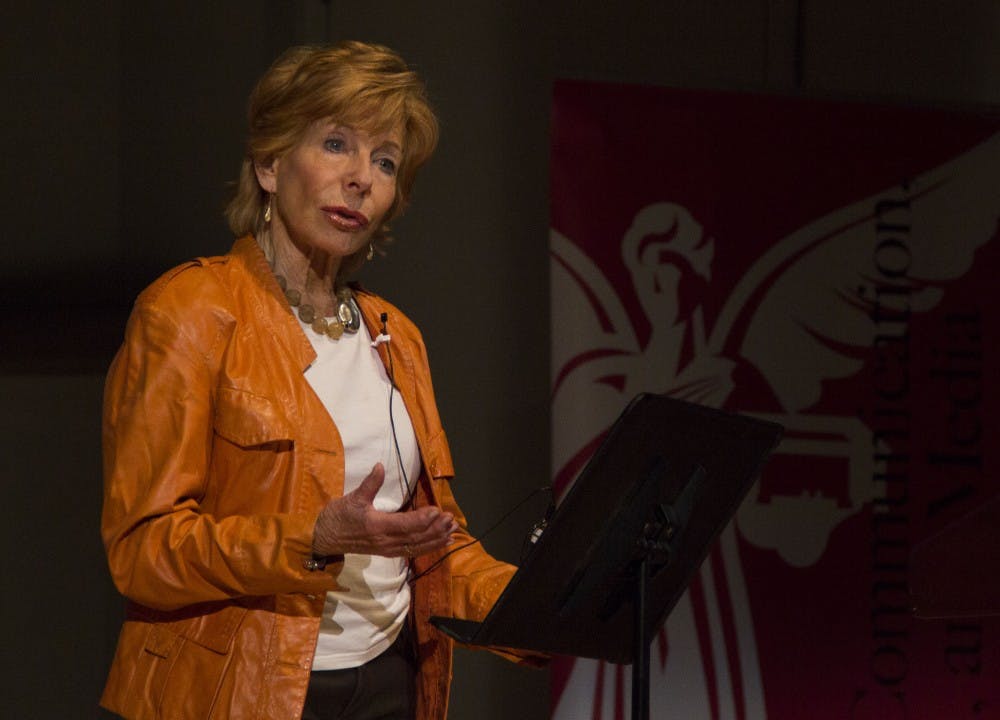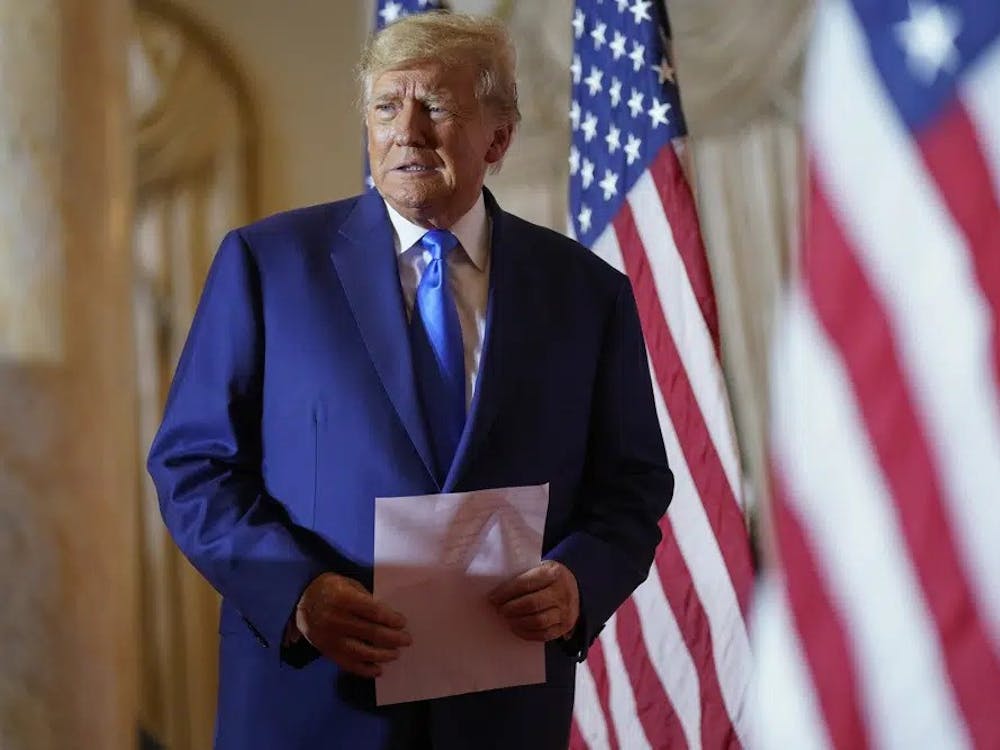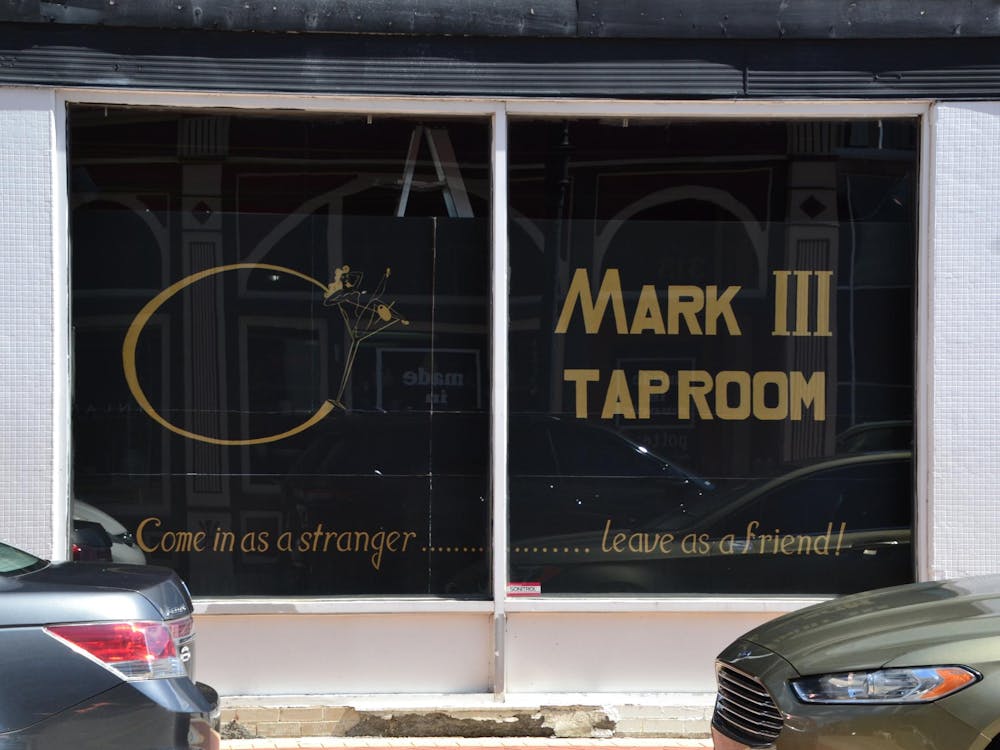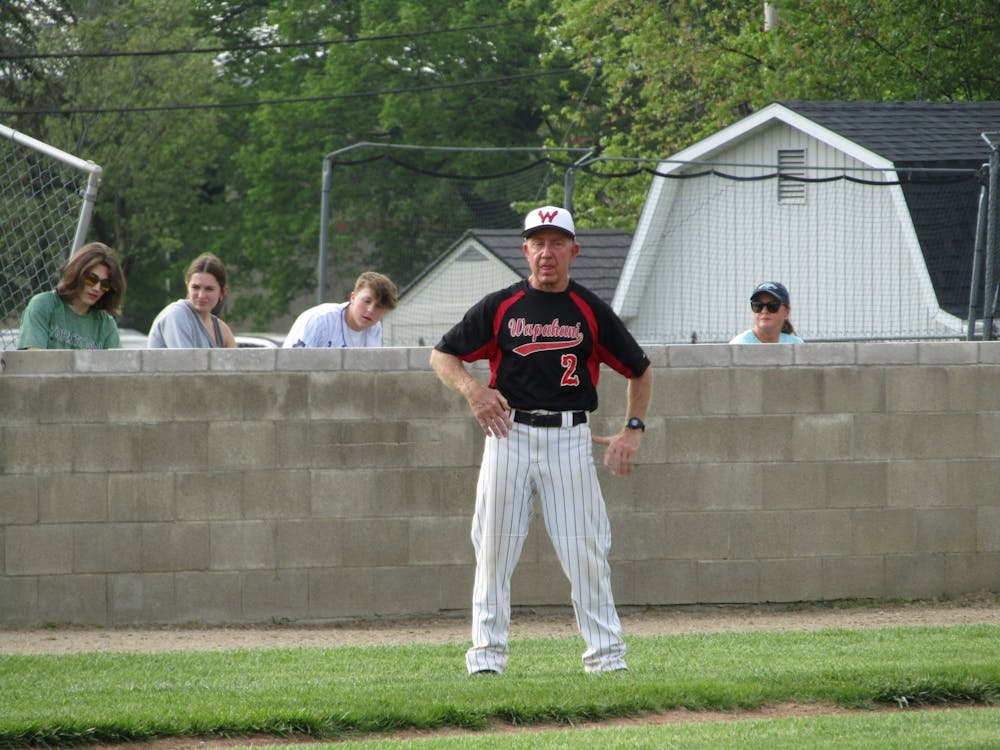Daring is the word to describe journalist Gail Sheehy. It’s the name of her 2014 memoir, the hallmark of her career and what she encourages others to be.
“[Daring] is the courage to try something you’ve never done before and fail at it. And maybe fail at it again. And try it again until you fail forward,” she said.
Sheehy spoke to a full house in Pruis Hall Oct. 22 as part of the David Letterman Distinguished Professional Lecture and Workshop Series.
Sheehy carved out a successful career in journalism by writing 17 of her own books and for publications including the Harold Tribune and New York Magazine.
Her career began to take off in the 1960s, a time when female journalists didn’t write hard-hitting news stories, but rather “baking and how to be the perfect housewife,” she said.
Sheehy wanted to write about serious issues, so she pitched a story to Harold Tribune editor Clay Felker, who was beginning to develop New York Magazine.
She risked her job by sneaking from the “female” section and into what she called the “testosterone section” to pitch her ideas to Felker.
“He told me to write journalism as a scene. Up until then it had just been who, what, where, when, why. Clay Felker was daring me to take a leap off the cliff into something that we would come to call the ‘new journalism,’” Sheehy said.
A year later, Felker approached Sheehy about covering Bobby Kennedy’s presidential campaign.
“The way to make your name as a journalist is not to write a lot of little stories, no matter how good they are. No one’s going to remember … You have to grab onto a big story, something everyone’s talking about but they don’t know why,” he told her.
Sheehy went with Kennedy to Oregon as he visited several small communities and campaigned for limits on guns.
He was shot two days later.
Sheehy continued her pursuit of big stories.
She went undercover as a prostitute to reveal the truths about the trade, she talked menopause with Hillary Clinton and watched the boy standing next to her get shot on Bloody Sunday in Northern Ireland.
Sheehy developed her own style of literary journalism by delving into the characters of her articles and using elements of literature to make her articles more novel-like.
This appealed to Corinne Lankowicz, a sophomore English education major.
“As a future English teacher I though some of her content might be good to teach my high school students … I’m contemplating getting all her books now and reading them,” Lankowicz said. “It was really inspiring to hear how she went to all these places that normal people wouldn’t want to go to, just to cover these stories. I found it really ambitious and inspiring.”
In addition to being daring, Sheehy encouraged future journalists to make a difference with the stories they tell.
“Telling true stories is really one of the noblest professions … [the stories] reflect our humanity. I encourage you to write and edit your stories with meaning so each tale stands for a larger message,” she said.





